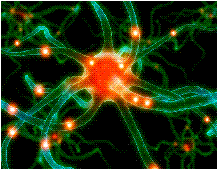South Carolina Assistive Technology Expo 2009
Wednesday, March 11, 2009
Columbia Metropolitan Convention Center
Columbia, South Carolina
FREE AND OPEN TO THE PUBLIC
NO PRE-REGISTRATION NECESSARY
Session 1 – 9:30 – 10:30 am
The Real World:
Demonstrations of how assistive technology is used to access web pages, and common barriers experienced by users. Facilitated by Janet Jendron: Demonstrations by Clay Jeffcoat (JAWS), Sam Creech (Headmouse and Augmentative Communication), Grace Strother (ZoomText). Jonathan Cruce, SCVR (Technical Support and Challenges)
E-books!
Free e-book resources. Using them to help build language and literacy skills. How text can be speech-enabled and accessed online, downloaded or used with readily available text readers. Bookshare, Microsoft Reader, University of Virginia ebooks, Browser Books and CAST UDL Book Builder. Mary Jo Schneider, Stacy Springer, Susan Maloney, AT Specialists, SC Department of Education
Assistive Technology, Supported Living and Employment:
Focus on individuals over the age of 18 with Brain Injury, Spinal Cord Injury, Intellectual disabilities, and Autism. Meghan Trowbridge, Susan Davis, Kristi Hartwell, Supported Community Living Initiative, USC Center for Disability Resources
Workplace Strategies and Solutions for People with Learning Disabilities:
AT strategies and solutions that have worked to promote success in the workplace. Overview of word prediction, screen reading, speech input, handheld technologies, GPS solutions, ergonomics and customized employment approaches. Carolyn Phillips and Liz Persaud, Georgia Tools for Life
Recycling and Reutilization in SC:
Overview of SC opportunities for pickup, delivery, and online services to get and provide used assistive technology. Overview of the STAR network services, Portlight Strategies Services, and the online SC AT Exchange, Paul Timmons (Portlight), Tiffany Johnston (Walton Options, STAR), Catherine Graham (SC AT Exchange)
Session 2 – 11:30 – 12:30 am
Ideas to Layout:
Beginning web layout using Cascading Style Sheets (CSS). Basic ideas, practices, tools and resources for designing a tableless web site using CSS. How CSS affects a site's accessibility and usability. CB Averitt, Florence-Darlington Technical College
Cortical Visual Impairment:
A Look at what it is, who has it, and what we can do about it. Designing treatment strategies, selecting materials, and engineering therapy activities to support individuals with CVI. Sharon Steed, AnMED Health
AT Consideration for Students in K-12 School Systems:
Comparison of consideration vs. assessment? Five-step process on thoughtful consideration of whether or not students with disabilities require AT. Ways for the IEP team to accomplish this at every meeting. Sue Maloney, Stacy Springer, Mark Daniels, AT Specialists, SC Department of Education
Assistive Technology for Computer Access:
Overview and demonstration of high and low tech methods and technology used for computer access by persons with physical disabilities. Carolyn Phillips and Liz Persaud, Georgia Tools for Life
Assistive Technology and Employment Options: How AT helps returning to or continuing employment:
Wheel chair accessibility and workplace modifications. SCVR’s Telework Program. Barbara Jolly, Tom Jackman, SC Vocational Rehabilitation
Session 3 – 2:00 – 3:00 pm
Basics of Web Accessibility and Usability:
What makes web pages inaccessible to people who use assistive technology due to disabilities or age-related limitations? Tools for designing accessible and usable web sites. Wendy Mullin, USC, Cheryl Kirkpatrick, Midlands Technical College
Low-tech seating and positioning solutions for real-life situations:
Seating needs of children including those with autism, attention deficit disorder, cerebral palsy, spina bifida, and Down Syndrome. Interactive problem solving for seating challenges. Review of a wide variety of low tech seating systems. Kathy Ganley, Abundant Life Physical Therapy
Augmentative and Alternative Communication Devices and Strategies for Adults with Communication Problems:
Issues and communication problems unique to the adult population. Low tech strategies and multimodal communication systems. Carol Page O’Day, SCATP
Post Secondary Education and AT:
New L.I.F.E. programs at USC, Clemson, and Coastal Carolina University and the impact of assistive technology as it relates to the students success. Meghan Trowbridge, Supported Community Living Initiative, USC Center for Disability Resources, Emma Savage-Davis and Gayle Disney, Coastal Carolina University
Assistive Technology Solutions for People with Degenerative Neurological Disorders (DND):
Basics of the process for people with permanent stable and permanent degenerative DND (e.g., Huntington’s Disease, Muscular Dystrophy, ALS, Multiple Sclerosis, Spinal Cord Injuries, Traumatic Brain Injury, Cerebral Palsy, Parkinson's, Alzheimer's, AIDS, stroke). AT Solutions, the HEAaT Model, and team approaches. Resources and Funding. Carolyn Phillips and Liz Persaud, Georgia Tools for Life
back to top
Return to the Expo 09 page
Read biographies of our presenters
Sponsored by the South Carolina Assistive Technology Program at the USC School of Medicine Center for Disability Resources, the SC Department of Education, the SC Department of Disabilities and Special Needs, the SC Association for Educational Technology, Mid-Carolina AHEC, Inc., and the SC Assistive Technology Advisory Committee, Division of State Information Technology (DSIT), SC Budget and Control Board.
























